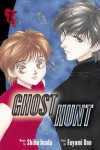Currently reading
The ugliness of the spirit

I love an unreliable narrator. There’s something to be said for a straightforward narrative where the only unreliability is people being woefully unaware that the person they’re always arguing with is the person they’re secretly in love with, but sometimes I prefer something a little meatier. And this story of death, jealousy and hate – of other people and of oneself – is a twisting puzzle all the way through where you’re never sure who to believe. We get multiple, disagreeing accounts of the same events, testimonies which have been potentially tampered with and just people’s inability to see their own lives for what they are.
Our narrator is ostensibly describing the events leading up to the murders of her sister Yuriko and her high school … friend? .. Kazue, who were both working as prostitutes at the time of their murders. But what we learn most about is these three’s lives growing up.
Our nameless narrator hates and says she’s repulsed by or scared of her sister, who she says is so beautiful that she actually looks unreal, like a monster, and whose eyes are inhuman. Everyone is fascinated by her and men lust after her, and according to the narrator, hate her sister and their mom for not being as pretty and striking.
Reading the general narration is difficult. Not because of the writing – it’s actually both well-written and colloquial, very heavy on voice. But the narrator has a bitterness to her you don’t usually encounter. She describes things in the ugliest terms possible most times, and sometimes she’ll start out describing something in a kind or neutral way, but her thoughts dissolve into nastiness the moment the person does something she dislikes or perceives as a slight. It’s sort of fascinating, trying to work out what the truth is from what she says and sees. And at times we also delve into writings by other people – the two murdered women and the man accused of killing them. But the women’s journals are both filtered through our narrator, so it’s hard to believe they have been left untouched – especially Yuriko’s, where the narrator actually says she had to “rewrite” bits that were hard to read.
Meanwhile, the accused killer’s account is so self-serving and pity-seeking that it’s difficult to take at face value.
The tale is, like I said, about the two murders on the surface, but mainly it’s about these women, and about the way they view themselves in society. About the ways they try to take power over their lives and yet remain , in a way, trapped by a society in which they are only allowed a few specific roles. Be the good, subservient wife, regardless of your own internal life or desires; be the career woman, partly there for useful work and partly there for added office decoration for your male coworkers; or be the slut, carnal and disposable. And our characters all think they understand how the world works, but in the end, only maybe one does.
In the end, this is a book about tragic, haunting lives and the ruin that civilization and expectation can make of people. It was well worth the read and I think I’ll have to look up more by Natsuo Kirino.









 1
1
 1
1